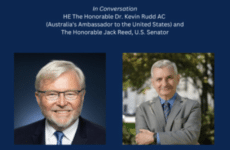By: Colleen O’Toole
Posted In: Entertainment

Photo credit: YouTube.com
After a long day of classes or work, when the last thing you want to do is homework, you sign on to Facebook.com. Simply type in a user name and password and the world of Facebook.com unfolds, and you’re immediately informed of who wrote on whose wall, who added new photos, who is attending what event, and much more. All with the click of a button, you can find out pretty much anything.
While millions of people have accounts on Facebook.com, MySpace.com, and Youtube.com, some people may not be aware of the pros and cons of using them. Yes, people can catch up with each other; can leave a message for a friend, and easily share pictures. But people don’t always realize that things that they post or do on these websites are not always private and can have consequences, such as schools suspending athletes, companies doing background checks on future employees, not to mention people’s reputations. According to the article, “Extracurricular videos roils campus,” on LATimes.com, a student at a Malibu high school secretly videotaped a teacher, who raised his voice when he lost control of the class, while the students laughed at him, and the video was posted on Youtube.com. Thus, there has been debate about what to do because it’s free speech for the students, but the person being video taped is being mocked. Daily, people are viewing more than 70 million videos, as stated on the Youtube.com website; meaning that millions of people view the site, and can see the teacher being ridiculed. Brian McCadden, chair of the Education Department at Salve Regina University, says that there is nothing wrong with using these sites. McCadden teaches an introduction to sociology class, and has talked about these websites there. “I think it can be a good thing; people connected to more people is not a bad thing, [they] can share, bounce ideas off each other, and speed up cultural evolution,” McCadden says. McCadden acknowledges that social networking can be dangerous because there are stalkers and there have been abductions. But, he says, “That is not Facebook or MySpace itself. It’s how people use it. So I think if anything the typical adult reaction is to get rid of it. You know in the 1950s they tried to get rid of rock and roll, drugs in the 70s, so now it’s Facebook and MySpace, and you’re not going to get rid of them so they should educate kids and how to be smart about it.” When it comes to the incident in Malibu, McCadden says that if people are aware of these possibilities then it may be a good thing because they will act more professionally. People, especially younger kids, believe that their accounts are private, or will only be seen by people they know, but employers, for example, are using these sites for background checks. McCadden says that people need to think beyond the immediate, which they do not always do. Still McCadden said that computer classes in schools should teach kids how to use it responsibly and inform them of consequences. “If 15 years from now you’re on Facebook still, if you have kids, as soon as they find out you’re on it, it won’t be cool, they will go to something else, anything that you’re not a part of,” McCadden says laughing. The police department offers a workshop to help parents and students learn about Internet safety, and “educate them on the language,” according to Sergeant William Fitzgerald, who has been working for the Newport Police Department for 23 years and is in the Commanding Community Policing Unit. Fitzgerald believes that it needs to be addressed in the community, and parents need to regulate and be involved. “I would be very wary of putting anything on the Internet; anything you put on there is public information and you have no way of restricting people from accessing the information,” said Fitzgerald. Since companies do background checks using these sites, Fitzgerald says that it is a source, but not the only source, and the information on the Internet is not always true. However, Fitzgerald said that soft cases have been made because people have communicated through the Internet about vandalizing, for example. Students worried about their job prospects after graduation may want to fine-tune their Facebook profiles as well. The article “Turn Your Blog, Facebook, and MySpace Pages from Threats into Opportunities” suggests that people can use these websites to promote themselves, and put qualities in their profile that the company they wish to work for would see. As Assistant Director for the Office of Career Development, Chris Pinault, points out, there is nothing holding employers back from using these websites. “If employers are going out there doing some investigation on MySpace and Facebook, they obviously have an interest in you at that point, and if the content on your webpage can ‘sell you to the organization’, I think that can be treated as a valuable asset when it comes to landing the job that you want,” Pinault says. However, Pinault said that it is important for people to maintain a professional image in all aspects of their lives with the outside world because today people can find out about others through such sites and something that is intended to be funny can be misinterpreted; therefore people must be careful with what is on their site. More and more companies are using Facebook, MySpace, and Youtube for background information on potential employees-a practice that can have an effect on people’s chances of getting a job. Pinault’s advice: “Do not put anything up there that could jeopardize job seeking or obtaining a job.” Pinault pointed out that resumes, cover letters, networking, and interviewing skills are the things to focus on since MySpace and Facebook are not the only things that companies look at. Schools and universities have also begun to monitor the social networking websites, and administrations are taking action. In an article titled, “Be Careful What You Put on Facebook,” it was reported that at Northwestern University, the majority of the women’s soccer team was suspended as a result of photos that showed hazing were put on Facebook.com. Salve Regina University’s Director of Athletics, Del Malloy, said that the NCAA does not have any rules against using these sites yet; they are leaving it up to each school, but it is a major concern across the country. “I don’t think anyone has a problem with Facebook, it’s the inappropriate use of Facebook,” Malloy says. Pictures of teams drinking, derogatory comments about coaches, teammates or opponents, should not be on these sites, and such things will cause people to question what is going on, said Malloy. Malloy thinks that the material posted on these sites is inadvertent and innocent. However, he mentioned a website that is trying to find pictures of different college teams and posting them, and rating the top ten rowdy and gross teams. “Beauty is in the eye of the beholder, so is the intent of what is going on in the eye of the beholder,” Malloy says. He warns that it can affect a person’s life though, and that the administrations are just trying to protect the students. Since these sites are not going away, Malloy thinks students need to be smart when using these sites, and if a lock can be put on it to do so and to police their sites, and be careful. According to professional lecturer and cultural anthropologist at Salve Regina University, Debra Curtis, since Facebook is a relatively new phenomenon, society will catch up and develop rules and expectations about what someone should and should not do on the website. “[It] definitely changes our notion of privacy,” Curtis says, “what is private and what is considered private now is not considered private 20 years ago.”













